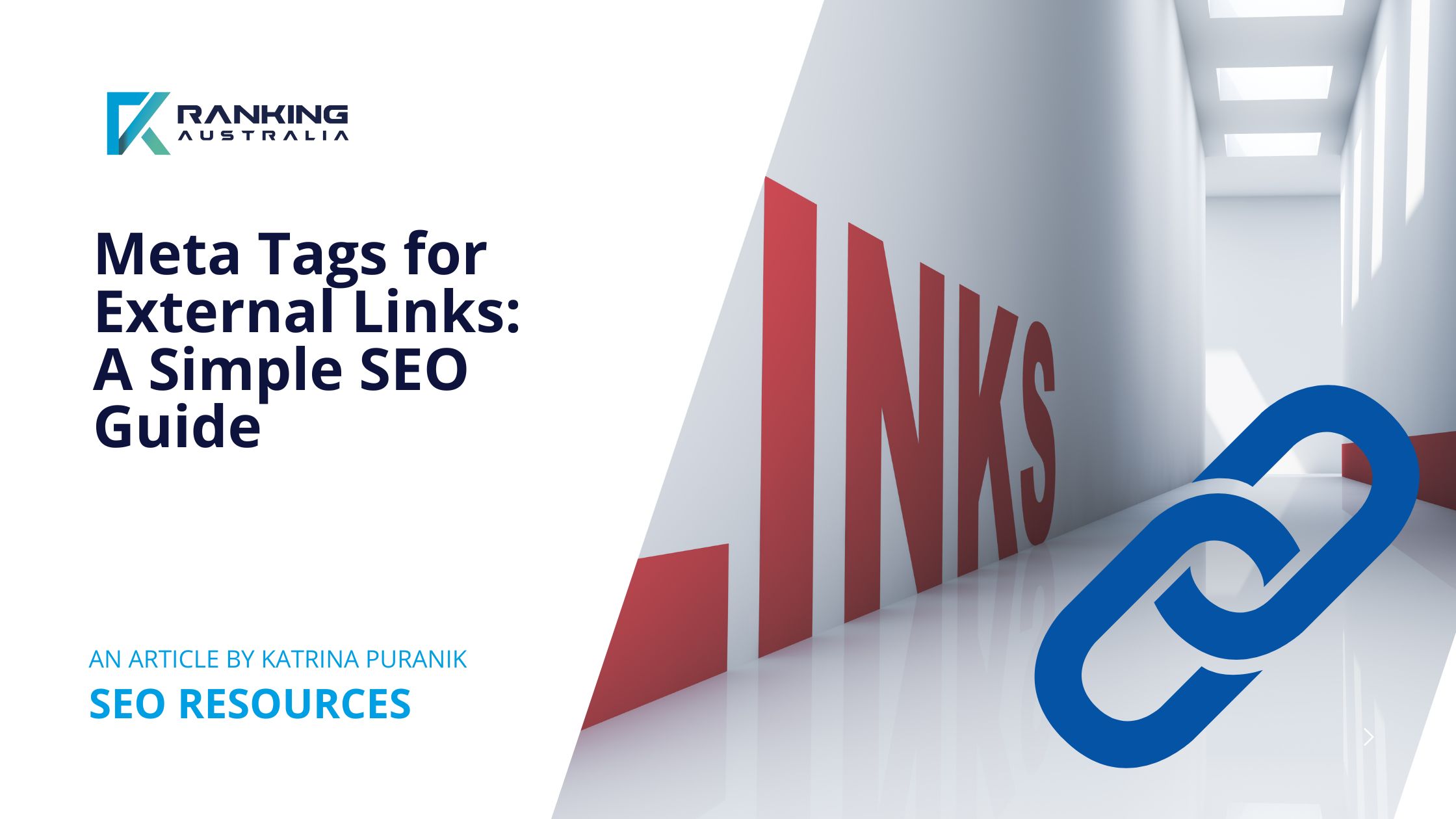
Meta Tags for External Links
A Simple Guide for Better SEO
Meta tags for external links play a crucial role in your website’s organic marketing, SEO and overall visibility. Understanding when to use nofollow, sponsored, ugc or standard follow links helps your blog stay compliant with Google guidelines and protects your site’s authority. This guide breaks down how these tags work and how you should apply them when linking out from your blog.
What Are Meta Tags for External Links?
When you add a hyperlink to another website within your blog, you can include a small instruction in the HTML called a rel attribute. These attributes help Google understand the relationship between your website and the external link.
The most common rel attributes are:
- rel="nofollow"
- rel="sponsored"
- rel="ugc"
- No rel attribute at all which is considered a standard follow link
Each serves a different purpose and affects your SEO differently.
Understanding Follow and Nofollow Links
Follow Links
A standard link with no rel attribute is considered a follow link. It passes link equity, meaning it can help improve the search ranking of the page you are linking to.
Visit Example Use follow links when you trust the source and want to reference or support it.
Nofollow Links
A link with rel="nofollow" tells Google not to pass ranking strength to the page you are linking to.
Visit Example This is useful when you need to include a link but do not wish to endorse it.
What About Sponsored and UGC Links?
rel="sponsored"
Used for paid, sponsored or affiliate links.
Our Partner If you earn money from the link in any way, use this tag.
rel="ugc"
Used for User Generated Content such as blog comments or forum posts.
User Link This helps Google understand the link was not placed by you directly.
Why Meta Tags for External Links Matter
Protecting Your Website’s SEO
Using the right tags ensures you do not accidentally endorse low quality or irrelevant websites. This keeps your backlink profile natural and helps avoid potential penalties.
Maintaining AHPRA Compliant Marketing
For health, wellness and medical clients, using nofollow for pages you reference but cannot endorse helps maintain compliance, especially when citing research, treatment information or external medical resources.
Supporting a Balanced Link Profile
Google prefers websites with a natural mixture of follow and nofollow links. Tagging links correctly helps avoid any appearance of manipulative SEO tactics.
When To Use Each Link Attribute
| Scenario | Correct Attribute |
|---|---|
| Citing research or medical sources you cannot endorse | rel="nofollow" |
| Paid ads, affiliates, partnerships, sponsored articles | rel="sponsored" |
| User submitted comments, forums, Q&A | rel="ugc" |
| Linking to trusted sources or partners you genuinely endorse | Follow (no rel tag) |
When You Should Not Use Nofollow
Do not nofollow every external link
This outdated tactic does not benefit SEO and may make your site appear unnatural.
Do not use nofollow on internal links
If you do not want a page indexed, use proper indexing controls, not nofollow.
How to Check If Your Links Use the Right Meta Tags
- Right click the link on your website
- Select Inspect
- Look for the rel attribute in the HTML
If you see rel="nofollow", rel="sponsored" or rel="ugc", the tag is applied. SEO tools can also scan your site and flag incorrect usage.
Ranking Australia’s Blog SEO Support
At Ranking Australia, we specialise in supporting service based businesses, health practitioners and wellness providers with AHPRA aligned content that performs strongly in Google Search. Our team ensures every external link in your blogs uses the correct meta tag to protect your ranking power and maintain your online credibility. With transparent dashboards and collaborative content support, we help you publish confidently, knowing your SEO foundations are accurate and compliant.
Final Thoughts on External Links
Using the right meta tags for external links is a simple and effective way to keep your website optimised, credible and protected. If you are publishing blogs regularly, make sure your external linking practices support your long term SEO goals.
If you would like help reviewing your existing content or improving your SEO strategy, the Google Experts at Ranking Australia are ready to support you.

